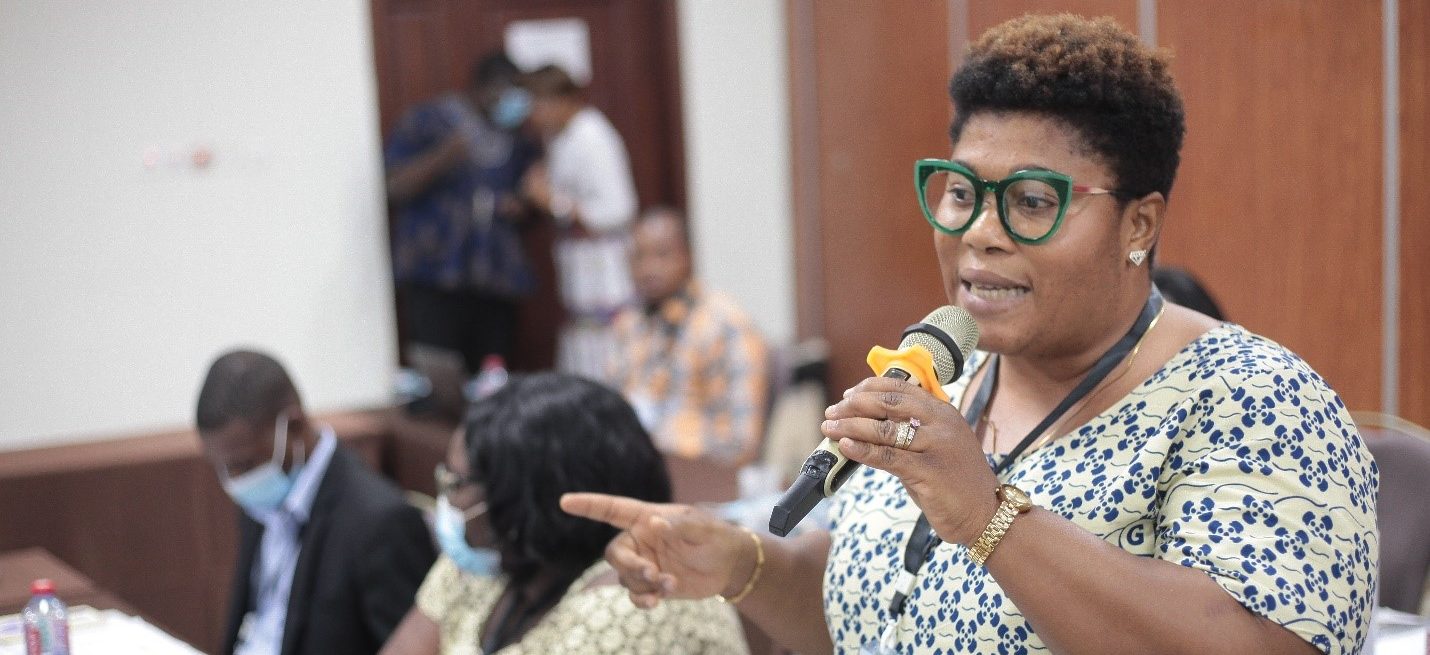Nurses and Midwives Behind the Wheel: Policy Dialogue as a Systematic Journey, Not a Destination
Published on May 16, 2023

By Angela Pereira, MOMENTUM Country and Global Leadership Communications Team Lead, and Katherine Wise, Consultant
Nurses and midwives are the backbone of the health system, providing everyday, essential health care to families around the globe. In many communities, they are the first and only point of care for mothers and their children.
Yet global reports like the World Health Organization’s State of the World’s Nursing and UNFPA’s State of the World’s Midwifery have detailed pervasive challenges impacting nurses and midwives. These range from a global nurse and midwife shortage, to a lack of quality education and training, to a need for more nurse and midwife leadership opportunities at the governance level.
The reports are also very clear on the solutions to better support nurses and midwives. But how can countries translate these global recommendations into effective action?
In India, Ghana, Madagascar, and multiple countries in the Caribbean, the answer has come in the form of a process called nursing and midwifery policy dialogues. Basically, it’s a process that engages a wide range of stakeholders – nurses, midwives, experts, ministry representatives, and decision makers – to come together to:
- Examine how current policies are working;
- Discuss needed adaptions to legislation, guidelines, strategies, and plans; and
- Make an action plan to better meet the needs of nurses and midwives—and ultimately the people they serve.
MOMENTUM Country and Global Leadership supports local partners to lead implementation of these dialogues across the four regions. First and foremost, these processes are locally-led with nurses and midwives at the center.
“A policy dialogue is not started unless there is an invested interest and commitment to lead the process from within the countries,” says Angela Mutunga, the MOMENTUM Policy and Advocacy Director leading this work. “Historically, midwives and nurses have not been involved in policy or advocacy work themselves, and decisions that impact their own jobs have been made without their representation. Including nurses and midwives ensures realistic solutions and builds sustainability of the process and progress, and ensures power rests with those who are living the daily experiences.”
Midwife Andreiamanarivo Zoarilala Murielle got involved in policy dialogue work in Madagascar to improve work conditions for herself and her fellow midwives.
“It’s important because there are many things which should be reformed, and should be enforced,” says Murielle. “There are not enough health workers, so the health workers are always overloaded. And so there should be an improvement made.”
Policy dialogue brings together groups from different midwife and nursing associations — and different government ministries or departments — that have rarely worked together in the past. For example, if a country is facing a shortage of trained nurses and midwives, education officials may need to be involved.
What does a policy dialogue look like?
It starts by establishing a local core team and gathering local situational analysis data that is then verified and analyzed. This ensures discussions are evidence-driven from the start so participants are working on a common set of identified opportunities and challenges.
Next, policy dialogue participants gather in a series of action-oriented meetings and workshops to use the data to determine solutions that would impact daily life for nurses, midwives, and the mothers, babies, and families they serve.
The meetings are about much more than talking. They are working meetings focused on using evidence, identifying solutions, and building consensus on a phased and targeted plan of action. Solutions can go beyond policy and legislation to leadership, financing, accountability, and partnership building.
“We are not just supporting these teams to do a one-off activity and engagement, we are supporting them to design a long-term road map and to adopt a systematic approach to a long-term policy dialogue process,” says Mutunga.
MOMENTUM is also adapting and contextualizing its policy dialogue process to be applicable across countries and health priorities, including family planning and reproductive health, and respectful maternity care.

What impacts are we already seeing from policy dialogues?
This process has resulted in substantive commitments to update policies and increase investments supporting nurses and midwives. MOMENTUM’s new multi-country brief on this topic further details the process, lessons, and impacts. These are a few outcomes from each country’s policy dialogues:
- The Caribbean: The Regional Nursing Body agreed to collaborate with regional educators to unify the midwifery curriculum and develop a regional midwifery exam.
- Ghana: Key decision makers have committed to look at the specific national priorities for strengthening nursing and midwifery that they can accomplish over two years.
- India: The Ministry of Health and Family Welfare has issued draft guidelines to improve working conditions for nurses and midwives while multiple state governments have made commitments to improve their investment in education.
- Madagascar: The government is leading a policy dialogue process that started eight months ago and is building upon learnings from these early adopters. The President himself has indicated interest in the discussions.
“My hope is that right after the policy dialogue, the short-term objectives will be directly applied and the long-term [objectives] will follow,” says Murielle.
“Sustained and impactful changes are not an overnight affair,” says Mutunga, “Long term investments are required to support progressive changes 10, 15 or 20 years down the line.”

